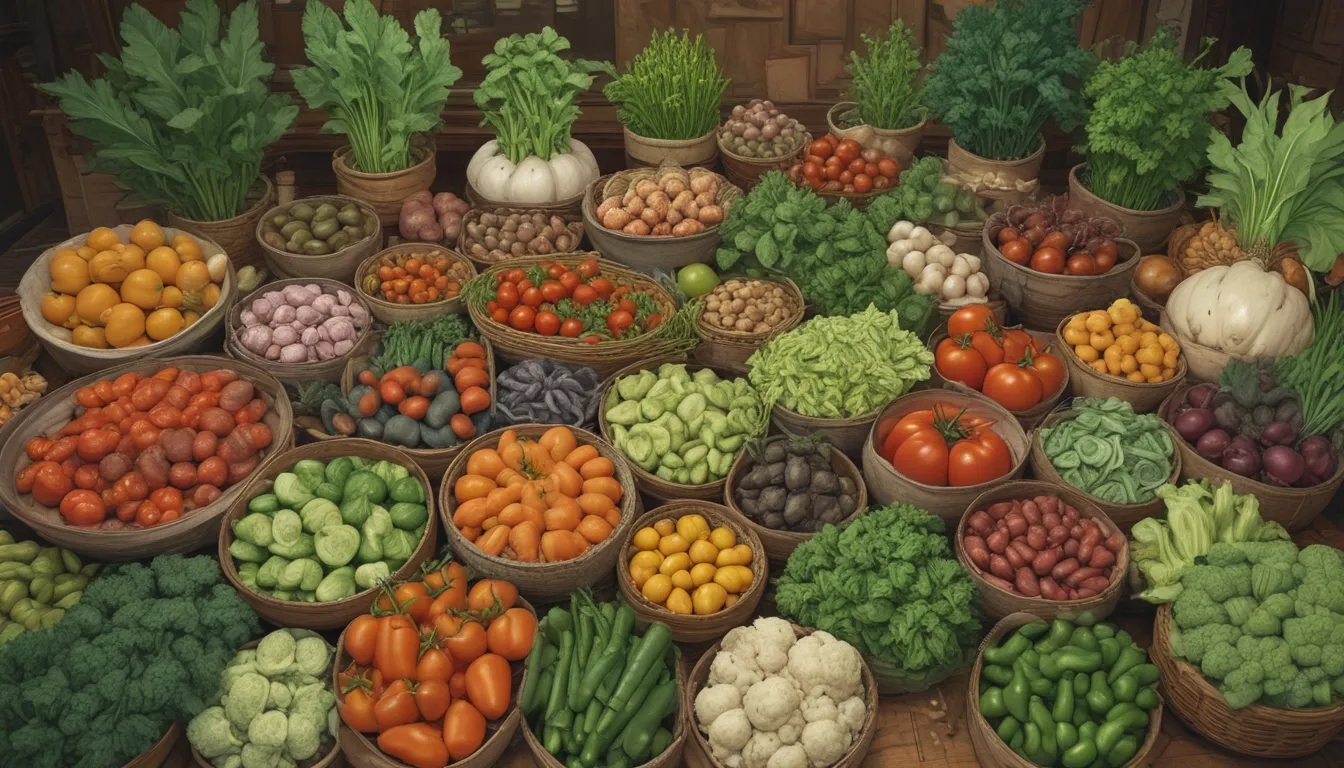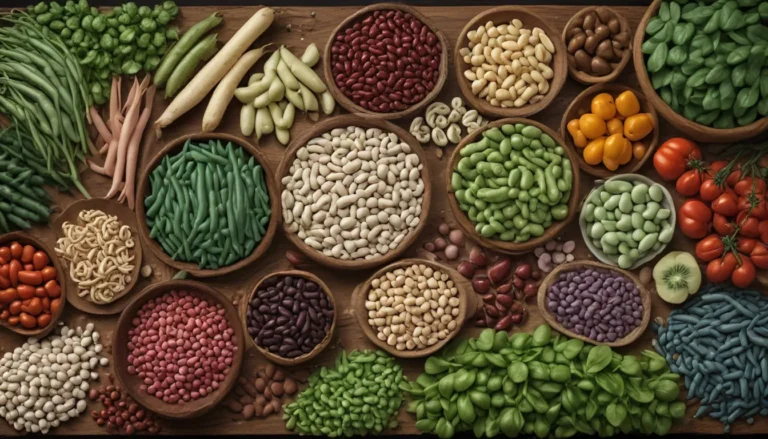Increasing Your Zinc Intake through Homegrown Veggies

Are you looking to boost your zinc intake? Look no further than your home vegetable garden! In addition to being a colorful and tasty addition to your meals, homegrown produce can also provide you with essential vitamins and minerals, including zinc.
In this in-depth article, we will explore the role of zinc in the body, how it functions, and the various vegetable sources of this important mineral. Whether you are a seasoned gardener or just starting out, you’ll find valuable information on how to incorporate more zinc-rich vegetables into your garden and your diet.
Understanding Zinc
Zinc is a mineral that plays a crucial role in the body’s overall functioning. As an essential nutrient, our bodies cannot produce zinc, so we must obtain it through our diets. The recommended daily allowance for healthy adults ranges from 8 to 11 milligrams, depending on age and gender.
Zinc is involved in a variety of important bodily functions, including immune support, wound healing, DNA synthesis, protein synthesis, and cell division. It also plays a role in growth and development, skin integrity, and our sense of taste and smell. Ensuring an adequate intake of zinc is essential for overall health and well-being.
Vegetable Sources of Zinc
While meat, poultry, and shellfish are common sources of zinc in the diet, many vegetables also contain significant amounts of this mineral. For those following a vegetarian or vegan diet, incorporating zinc-rich vegetables into meals is essential.
Plant-based sources of zinc include whole grains, legumes, certain seeds, fungi, and a variety of vegetables. Unlike grains and legumes, which contain compounds that can reduce zinc absorption, most garden vegetables and fungi do not contain these inhibitors, making them an excellent source of bioavailable zinc.
Top Homegrown Sources of Zinc
-
Pumpkin Seeds: A one-ounce serving of pumpkin seeds provides over 25% of the daily value for men and 20% for women. Consider growing ‘Jack-O-Lantern’ pumpkins in your garden for a bountiful harvest of seeds.
-
Shiitake Mushrooms: One half cup of cooked, diced shiitake mushrooms offers 1 milligram of zinc. Growing your own mushrooms can be a fun and rewarding way to incorporate this mineral-rich food into your diet.
-
Spinach: This leafy green is not only rich in iron but also contains 0.7 milligrams of zinc per half cup when cooked. Choose varieties like ‘Bloomsdale Long Standing’ for a bountiful harvest of nutrient-dense leaves.
-
Peas: Sweet green peas provide 0.5 milligrams of zinc per half cup. Consider growing varieties like ‘Garden Sweet’ peas for a sweeter flavor and a nutrient boost.
By growing these zinc-rich vegetables in your garden, you can ensure a fresh and abundant supply of this essential mineral for your daily diet. Whether you are a seasoned gardener or just starting, incorporating these veggies into your garden can be a cost-effective and rewarding way to meet your nutritional needs.
Incorporating Zinc-Rich Veggies into Your Diet
Whether you are looking to boost your zinc intake or simply enjoy the taste and health benefits of homegrown vegetables, adding zinc-rich veggies to your diet is a great way to enhance your overall well-being. Here are some tips for incorporating these nutrient-dense foods into your meals:
-
Snack on Pumpkin Seeds: Roasted pumpkin seeds make a delicious and nutritious snack that can be enjoyed on its own or added to salads, soups, or trail mixes.
-
Experiment with Shiitake Mushrooms: Try adding diced shiitake mushrooms to stir-fries, soups, or pasta dishes for a boost of flavor and essential nutrients.
-
Add Spinach to Your Meals: Use cooked spinach as a side dish, add it to omelets, soups, or smoothies, or mix it into pasta dishes for a nutritious and delicious meal.
-
Enjoy Fresh Peas: Fresh peas can be enjoyed on their own as a side dish, added to salads, soups, or casseroles, or blended into dips and spreads for a tasty snack.
By incorporating these nutrient-rich vegetables into your meals, you can not only boost your zinc intake but also enjoy a variety of flavors and textures that will enhance your culinary experience.
Conclusion
In conclusion, zinc is an essential mineral that plays a vital role in our overall health and well-being. By incorporating zinc-rich vegetables into your home garden and daily diet, you can ensure an adequate intake of this important nutrient. Whether you are a seasoned gardener or just starting out, growing these nutrient-dense foods can be a rewarding and cost-effective way to meet your nutritional needs.
Let us know how you plan to incorporate these zinc-rich veggies into your garden and meals in the comments below. And feel free to share your tips and recipes for enjoying these nutrient-packed foods!
For more information on the nutrients in homegrown vegetables, check out the following articles:
- What Vegetables Are High in Iron?
- Which Vegetables Are the Best Sources of Calcium?
- Get Your Daily Dose of B Vitamins with These Homegrown Vegetables
Remember, always consult with a medical professional before making any significant changes to your diet or supplement routine to ensure your health and well-being are properly supported. Happy gardening and happy eating!





